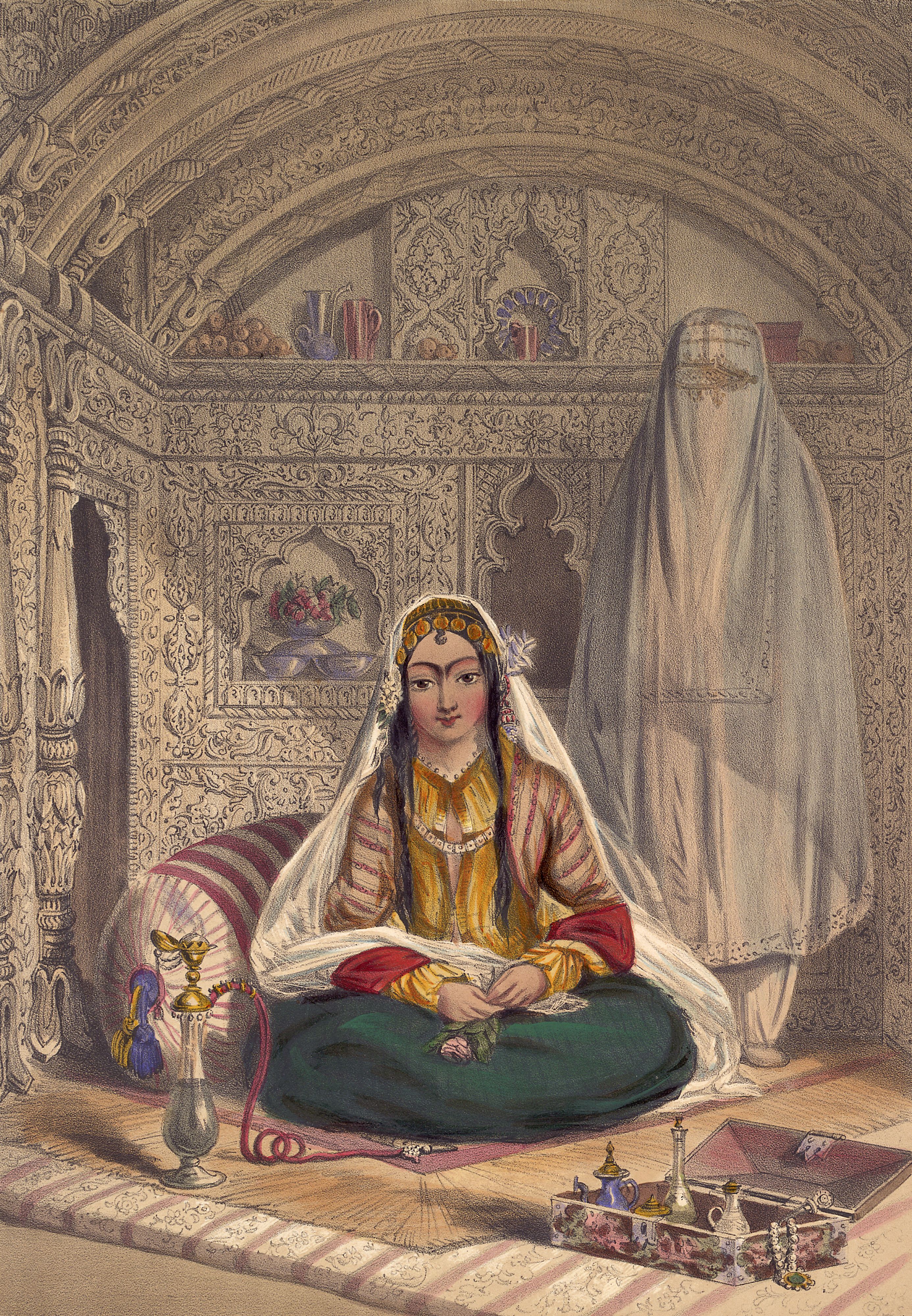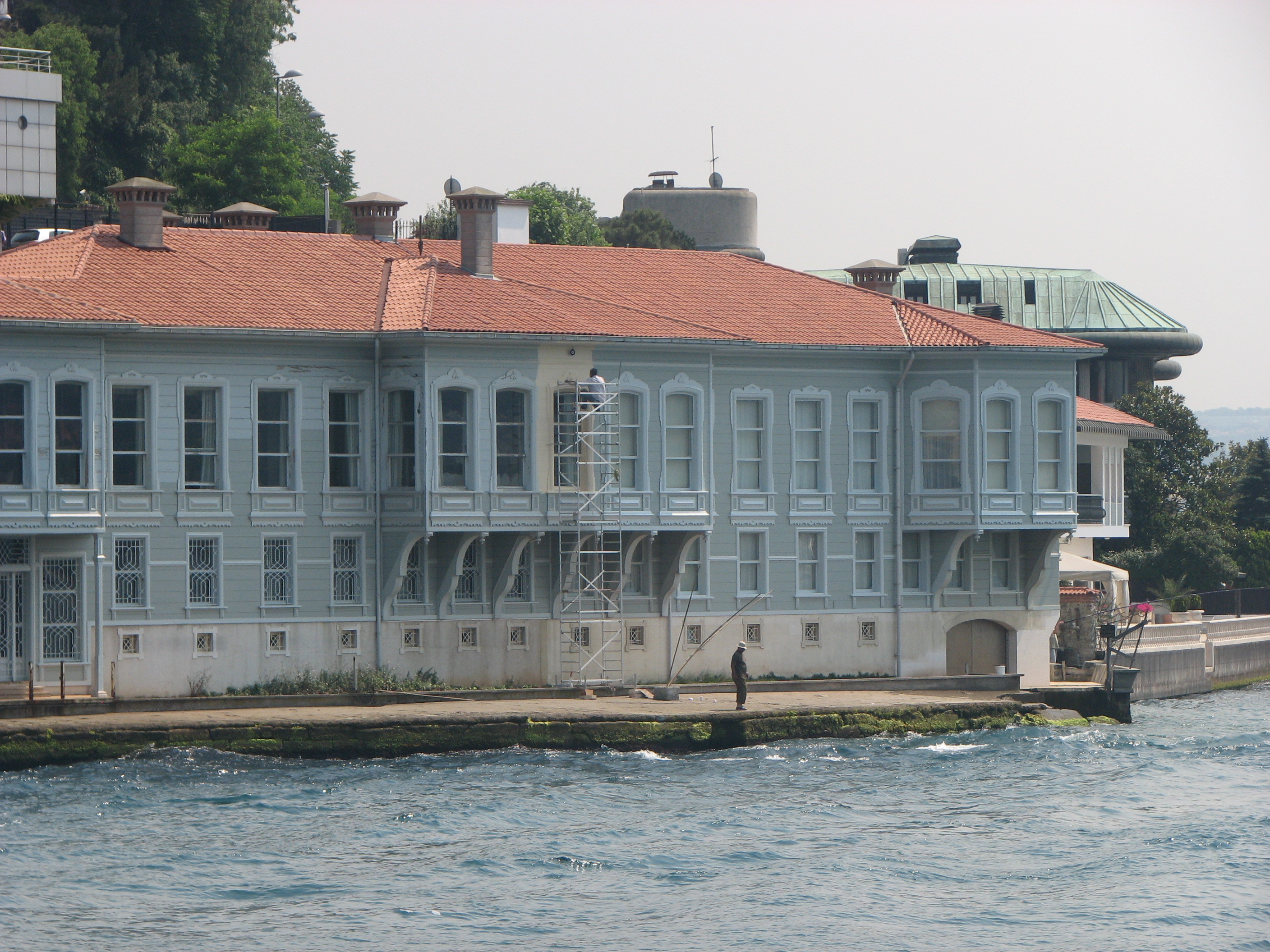|
Kıbrıslı Mehmed Emin Pasha
Kıbrıslı Mehmed Emin Pasha ("Mehmed Emin Pasha the Cypriot"; 1813–1871) was an Ottoman civil servant and statesman of Turkish Cypriot origin, who served at the top post of Grand Vizier during three different times under the reign of the sultan Abdülmecid I. He was in favor in reforming the Ottoman Empire into a constitutional monarchy. He however died before the first Ottoman constitution came into existence. Career His uncle was in charge of Mahmud II's private treasury, secured him for palace service while he was young, and he then entered the ''Hassa'' regiment (1833–1834). He then studied abroad, in France, at the Sultan's expense. He served in a military capacity, as ''serasker'', in Acre (1844–1845), Jerusalem (1845–1847; during which time he suppressed a serious Bedouin revolt), Tirnova (1847), and then Belgrade (1847–1848). During this period, many rumours circulated about his mismanagement practices, but they were dismissed by the Sultan as goss ... [...More Info...] [...Related Items...] OR: [Wikipedia] [Google] [Baidu] |
Cyprus
Cyprus ; tr, Kıbrıs (), officially the Republic of Cyprus,, , lit: Republic of Cyprus is an island country located south of the Anatolian Peninsula in the eastern Mediterranean Sea. Its continental position is disputed; while it is geographically in Western Asia, its cultural ties and geopolitics are overwhelmingly Southern European. Cyprus is the third-largest and third-most populous island in the Mediterranean. It is located north of Egypt, east of Greece, south of Turkey, and west of Lebanon and Syria. Its capital and largest city is Nicosia. The northeast portion of the island is ''de facto'' governed by the self-declared Turkish Republic of Northern Cyprus, which was established after the 1974 invasion and which is recognised as a country only by Turkey. The earliest known human activity on the island dates to around the 10th millennium BC. Archaeological remains include the well-preserved ruins from the Hellenistic period such as Salamis, Cyprus, Salam ... [...More Info...] [...Related Items...] OR: [Wikipedia] [Google] [Baidu] |
Aleppo Eyalet
Aleppo Eyalet ( ar, إيالة حلب; ota, ایالت حلب, Eyālet-i Ḥaleb) was an eyalet of the Ottoman Empire. After the Ottoman conquest it was governed from Damascus, but by 1534 Aleppo was made the capital of a new eyalet. By Gábor Ágoston, Bruce Alan Masters Its reported area in the 19th century was . Its capital, Aleppo, was the third largest city of the Ottoman Empire during the 16th and 17th century. History Thanks to its strategic geographic location on the trade route between Anatolia and the east, Aleppo rose to high prominence in the Ottoman era, at one point being second only to Constantinople in the empire. By the middle of the 16th century, Aleppo had displaced Damascus as the principal market for goods coming to the Mediterranean region from the east. This is reflected by the fact that the Levant Company of London, a joint-trading company founded in 1581 to monopolize England's trade with the Ottoman Empire, never attempted to settle a factor, or agent, ... [...More Info...] [...Related Items...] OR: [Wikipedia] [Google] [Baidu] |
Leyla Saz
Leyla Saz, also called Leyla Hanimefendi (1850–1936) was a Turkish composer, poet and writer. Biography Born in 1850, she was the daughter of İsmail Hakkı Pasha, (often called Hekim İsmail Pasha (İsmail Pasha the Doctor). She spent her childhood in the Dolmabahçe Palace as a member of the Imperial Harem. At the age of seven, she began taking piano lessons from an Italian pianist. After 1876, she studied Turkish music with Medini Aziz Efendiu. She also took private lessons in French, and later in ancient Greek and theology, while her father was the Ottoman governor of Crete. She states that the Cretan writer and political activist Elisavet Contaxaki taught her Greek. She married Giritli Sırrı Pasha, a high-ranking Ottoman administrator of Cretan origin, who later became prime minister, and a poet in his own right. In line with her husband's appointments, she traveled across Anatolia and the Balkans. In 1873, she gave birth to a son named Vedat, who became an archite ... [...More Info...] [...Related Items...] OR: [Wikipedia] [Google] [Baidu] |
London
London is the capital and List of urban areas in the United Kingdom, largest city of England and the United Kingdom, with a population of just under 9 million. It stands on the River Thames in south-east England at the head of a estuary down to the North Sea, and has been a major settlement for two millennia. The City of London, its ancient core and financial centre, was founded by the Roman Empire, Romans as ''Londinium'' and retains its medieval boundaries.See also: Independent city#National capitals, Independent city § National capitals The City of Westminster, to the west of the City of London, has for centuries hosted the national Government of the United Kingdom, government and Parliament of the United Kingdom, parliament. Since the 19th century, the name "London" has also referred to the metropolis around this core, historically split between the Counties of England, counties of Middlesex, Essex, Surrey, Kent, and Hertfordshire, which largely comprises Greater London ... [...More Info...] [...Related Items...] OR: [Wikipedia] [Google] [Baidu] |
Harem
Harem ( Persian: حرمسرا ''haramsarā'', ar, حَرِيمٌ ''ḥarīm'', "a sacred inviolable place; harem; female members of the family") refers to domestic spaces that are reserved for the women of the house in a Muslim family. A harem may house a man's wife or wives, their pre-pubescent male children, unmarried daughters, female domestic servants, and other unmarried female relatives. In harems of the past, slave concubines were also housed in the harem. In former times some harems were guarded by eunuchs who were allowed inside. The structure of the harem and the extent of monogamy or polygamy has varied depending on the family's personalities, socio-economic status, and local customs. Similar institutions have been common in other Mediterranean and Middle Eastern civilizations, especially among royal and upper-class families, and the term is sometimes used in other contexts. In traditional Persian residential architecture the women's quarters were known as '' anda ... [...More Info...] [...Related Items...] OR: [Wikipedia] [Google] [Baidu] |
Julius Michael Millingen
Julius Michael Millingen (1800–1878) was an English physician and writer. He was one of the doctors treating Lord Byron at his death. Life He was born in London on 19 July 1800, a son of James Millingen. He spent his early years in Calais and Paris, and was sent to school in Rome. In holidays he took walking tours in Germany, on one of which he is said to have visited Goethe in Weimar. In 1817 he entered the University of Edinburgh, and attended medical classes there until 1821, when he received a diploma from the Royal College of Surgeons of Edinburgh. When the London Philhellenic Committee was formed, Millingen was recommended to it by William Smith, and on 27 August 1823 he left England for Corfu, with letters of introduction to the Greek government and to Lord Byron. Arriving at Asos in Cephalonia in November of that year, he found Byron at Metaxata, and spent some time with him there. He later accompanied him to Missolonghi, and attended him in his last illness, which, a ... [...More Info...] [...Related Items...] OR: [Wikipedia] [Google] [Baidu] |
Melek Hanım
Melek ( hu, Mellek) is a municipality and village in the Nitra District of the south-west of Slovakia, in the Nitra Region The Nitra Region ( sk, Nitriansky kraj, ; hu, Nyitrai kerület) is one of the administrative regions of Slovakia. It was first established in 1923 and from 1996 exists in its present borders. It consists of seven districts ( sk, okres) and 354 .... References Villages and municipalities in Nitra District {{Nitra-geo-stub ... [...More Info...] [...Related Items...] OR: [Wikipedia] [Google] [Baidu] |
Kandilli, Üsküdar
Kandilli is a neighbourhood of Üsküdar, Istanbul, Turkey. It lies on the Asian bank of Bosphorus and is home to some of Istanbul's in-city forests. The Kandilli Anatolian High School for Girls ( tr, Kandilli Anadolu Kız Lisesi) was one of the first girl's high schools in Ottoman Turkey. The Kandilli Observatory, a facility of Boğaziçi University, is dedicated mostly to earthquake science. The Kandilli Earthquake Museum is located within the campus. The historical waterfront Vaniköy Mosque at , founded in honor of Vani Mehmet Efendi, an ethnic Kurdish pasha from Van, was built in 1670 during the Ottoman period The Ottoman Empire, * ; is an archaic version. The definite article forms and were synonymous * and el, Оθωμανική Αυτοκρατορία, Othōmanikē Avtokratoria, label=none * info page on book at Martin Luther University) .... The mosque was badly damaged by fire on 15 November 2020, caused by a short circuit. References {{Istanbul-ge ... [...More Info...] [...Related Items...] OR: [Wikipedia] [Google] [Baidu] |
Yalı
A yalı ( tr, yalı, from Greek ''yialí'' (mod. ''yialós''), literally "seashore, beach") is a house or mansion built right on the waterside (almost exclusively seaside, particularly on the Bosphorus strait in Istanbul) and usually built with an architectural concept that takes into account the characteristics of the coastal location. A family who owned a waterside residence would spend some time in this usually secondary residence located at the sea shore, as opposed to the '' konak'' ("mansion", aside from the term's use to refer to buildings with administrative functions) or the '' köşk'' ("pavilion", often serving a determined practical purpose, such as hunting, or implying a temporary nature). Thus, going to the "yalı" acquired the sense of both going to the seaside and to the house situated there. In its contemporary sense, the term "yalı" is used primarily to denote those 620 waterside residences constructed during the 18th, 19th, and 20th centuries and sprinkled al ... [...More Info...] [...Related Items...] OR: [Wikipedia] [Google] [Baidu] |
Turkish People
The Turkish people, or simply the Turks ( tr, Türkler), are the world's largest Turkic ethnic group; they speak various dialects of the Turkish language and form a majority in Turkey and Northern Cyprus. In addition, centuries-old ethnic Turkish communities still live across other former territories of the Ottoman Empire. Article 66 of the Turkish Constitution defines a "Turk" as: "Anyone who is bound to the Turkish state through the bond of citizenship." While the legal use of the term "Turkish" as it pertains to a citizen of Turkey is different from the term's ethnic definition, the majority of the Turkish population (an estimated 70 to 75 percent) are of Turkish ethnicity. The vast majority of Turks are Muslims and follow the Sunni and Alevi faith. The ethnic Turks can therefore be distinguished by a number of cultural and regional variants, but do not function as separate ethnic groups. In particular, the culture of the Anatolian Turks in Asia Minor has underlied and ... [...More Info...] [...Related Items...] OR: [Wikipedia] [Google] [Baidu] |
Dragoman
A dragoman or Interpretation was an interpreter, translator, and official guide between Turkish-, Arabic-, and Persian-speaking countries and polities of the Middle East and European embassies, consulates, vice-consulates and trading posts. A dragoman had to have a knowledge of Arabic, Persian, Turkish, and European languages. In the Ottoman Empire, Dragomans were mainly members of the Ottoman Greek community, which possessed considerable multilingual skills, because substantial Greek trading communities did business in the worlds of the Mediterranean Sea, the Black Sea, the Atlantic Ocean and the Indian Ocean. To a lesser extent, other communities with international commercial links, notably the Armenians, were recruited. Etymology and variants In Arabic the word is ترجمان (''tarjumān''), in Turkish ''tercüman''. Deriving from the Semitic quadriliteral root ''t-r-g-m'', it appears in Akkadian as "targumannu," in Ge'ez (Classical Ethiopic) as ትርጓም (''t-r-g ... [...More Info...] [...Related Items...] OR: [Wikipedia] [Google] [Baidu] |




